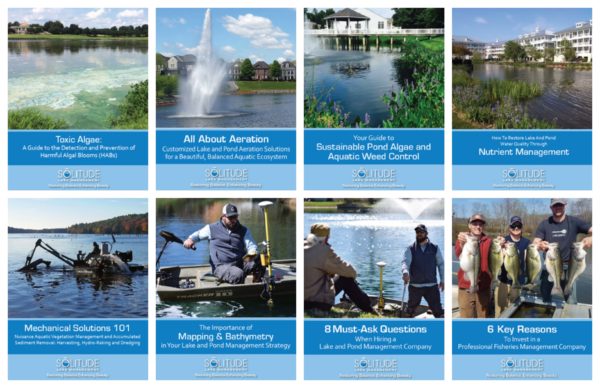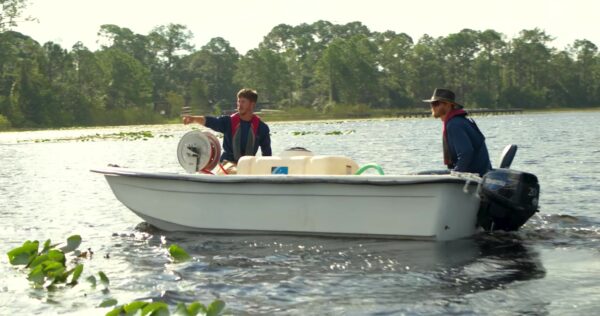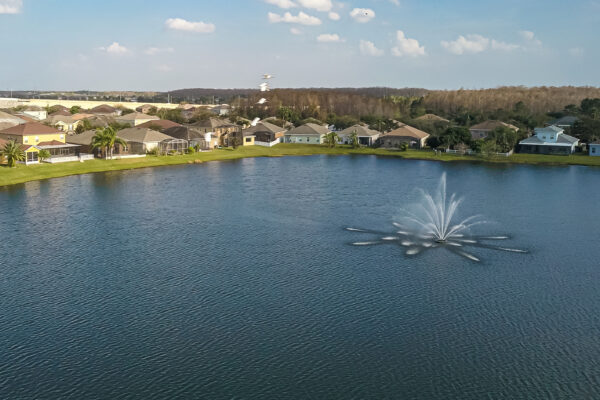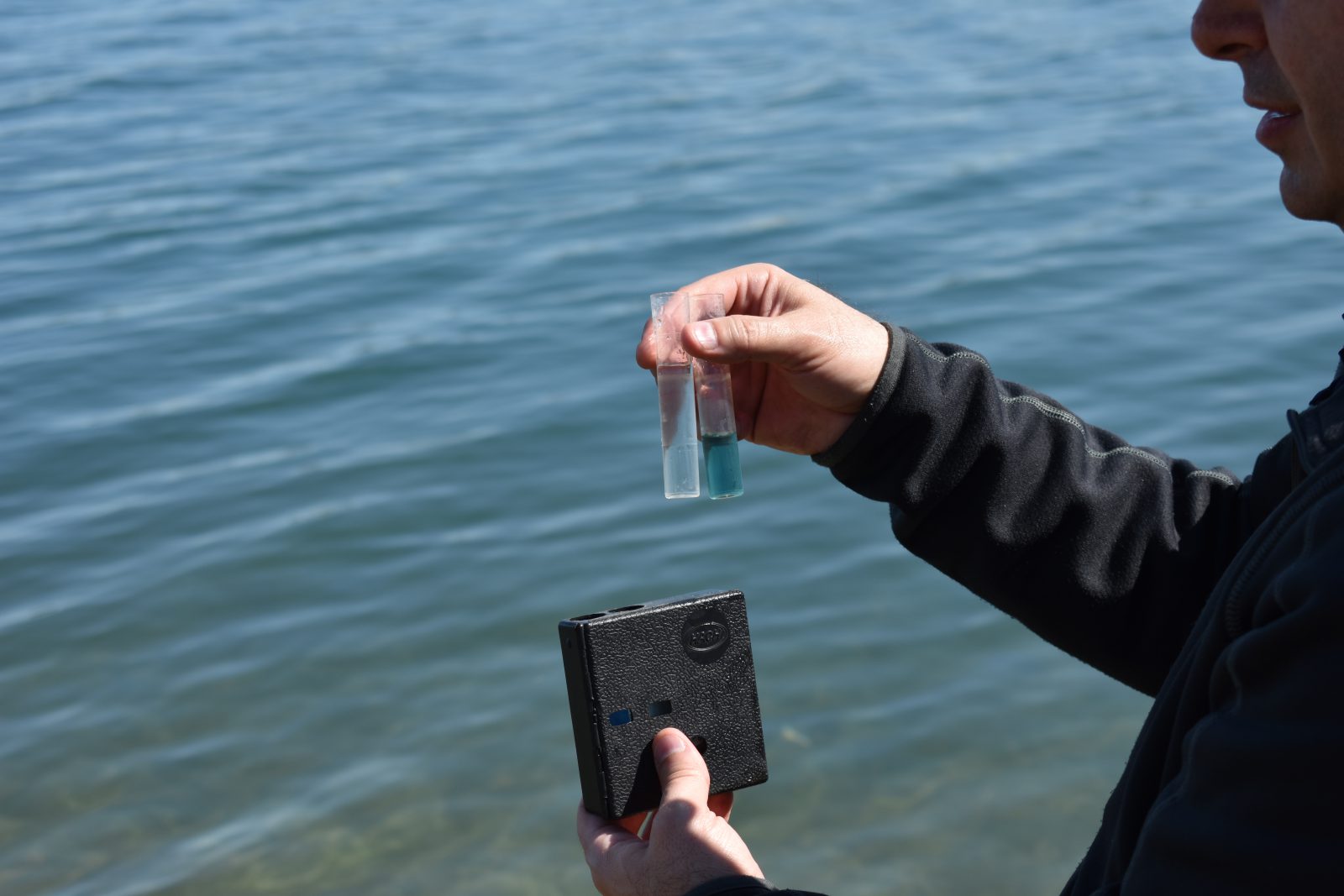
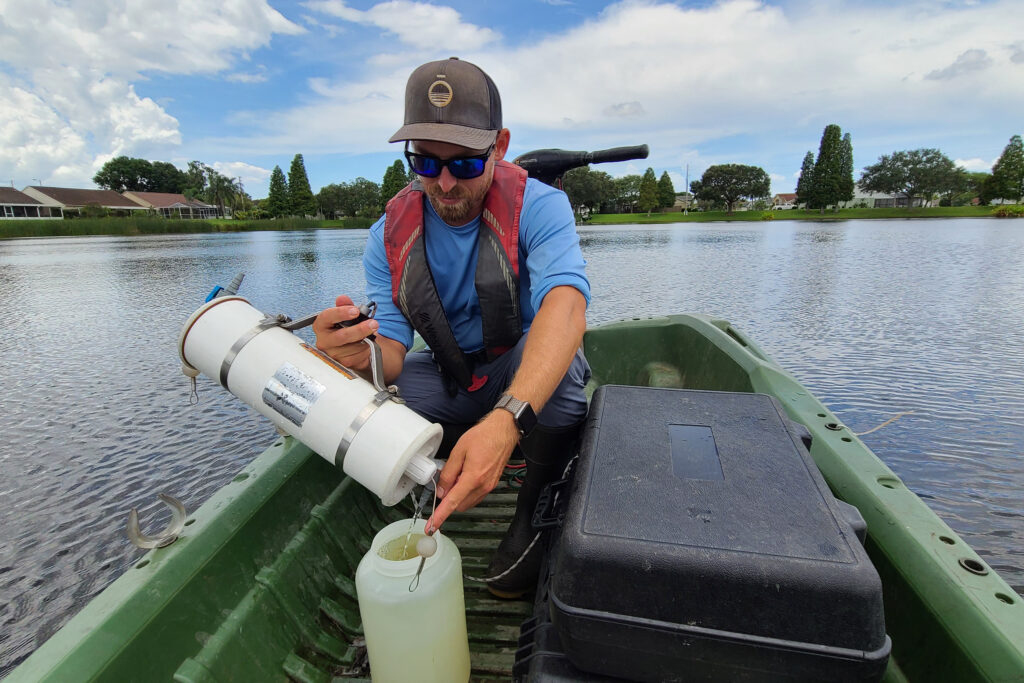
Just as the seasons reflect a natural cycle of birth, aging and dying, your waterbody experiences a similar transformation. From the moment it is formed, a lake or pond begins the aging process of eutrophication, which enriches the water with nutrients like phosphorous and nitrogen that cause the buildup of sediment. Human elements like sewage discharge and fertilizer runoff can cause an excess of these nutrients and speed up the aging process. The resulting nutrient pollution can cause water quality issues, including foul odors, nuisance aquatic weeds, murky water, toxic algae blooms, heavy metals and harmful bacteria that can not only diminish the natural beauty of a waterbody, they can jeopardize human and pet health, kill fish, and destroy ecosystems.
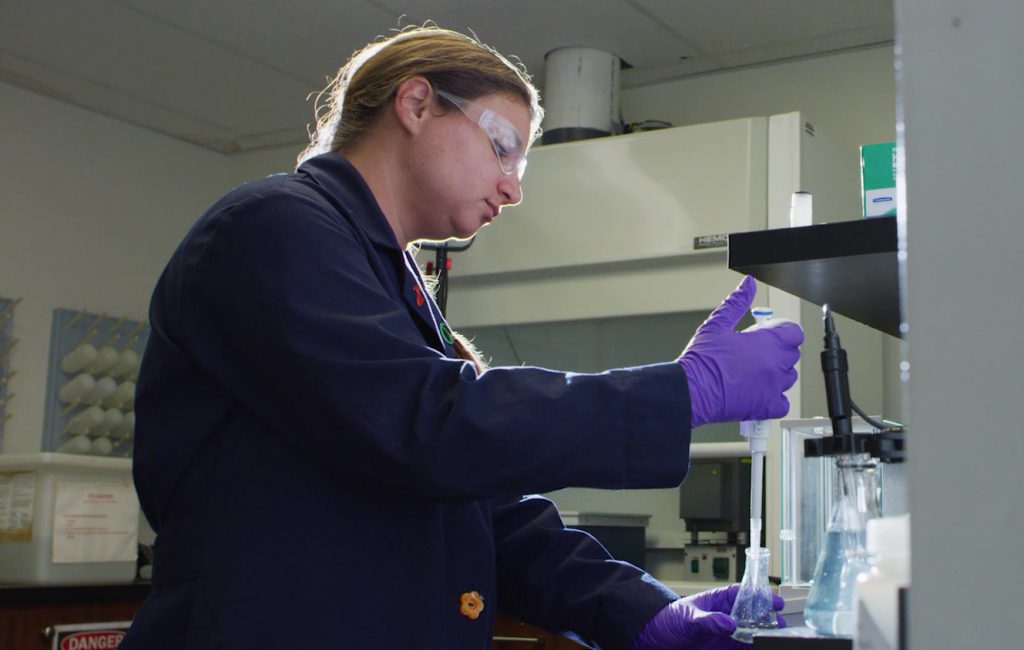
Benefit of Water Quality Monitoring
Fortunately, there are a number of lake and pond management solutions that can be implemented to help prevent or slow many of the water quality issues that threaten recreational lakes, drinking water reservoirs, fisheries, stormwater ponds and turf irrigation systems. The first step in diagnosing any problem is testing and monitoring, which are at the core of an effective and proactive management program. By utilizing year-round water quality data, lake and pond managers are better able to identify potential problems before they occur. Checking the vitals of a lake or pond can help reveal imbalances in nutrient levels, which is often the first sign of a vulnerable waterbody. In addition to determining nutrient levels, lake and pond managers can use water samples to test other parameters such as pH, alkalinity, hardness, salinity, temperature, conductivity, algae species and density, and bacteria counts, which all play an equally important role in the health of an aquatic system. Water quality monitoring is essential to identify the best management approach for a lake or pond, but the location and rate at which samples are taken depend on the waterbody’s size, specific use and management goals.
Tailored Water Quality Testing Approaches
Because aquatic ecosystems are always in a natural state of change, no two waterbodies are physically or chemically the same, and often require personalized approaches. In supply reservoirs, frequent assessments can prevent detrimental algae species, like cyanobacteria, from being introduced into a community’s drinking water. In lakes and ponds used for turf irrigation, the early monitoring of nuisance aquatic vegetation, nutrient loads and heavy metals can prevent clogged irrigation intakes and decrease the need for treatments, which can be detrimental to turf grass and other ornamental vegetation. In fisheries, recurring dissolved oxygen tests indicate if aquatic conditions are right for fish to thrive. And in recreational waterbodies, regular E. coli and fecal coliform tests can help determine if the water is safe for activities like swimming and kayaking.
No matter the waterbody, it’s important to account for naturally occurring environmental changes by conducting tests on a regular basis—whether that is weekly, monthly or seasonally. The insights gained from comprehensive water quality testing are used to establish a baseline of overall water health and to create a proactive, personalized and ecologically-balanced management plan. While factors like alkalinity and conductivity often remain stable over time, dissolved oxygen, algae density, nuisance vegetation and pH can fluctuate seasonally. Physical events like rainstorms or droughts can affect parameters such as nutrient load and water clarity. And over time, sediment levels may dramatically alter water depth and the life span of a lake or pond.
Water quality testing and monitoring are the backbone of any long-term lake or pond management plan—even for those waterbodies that appear to be in suitable condition. Proactive and regular water testing and data collection will help reveal trends, identify future water quality impairments and help ensure that the most effective and ecologically-balanced management methods are being utilized.
We Know You Care About Your Water. We Care Too.
SOLitude Lake Management is a nationwide environmental firm committed to providing sustainable solutions that improve water quality, enhance beauty and preserve natural resources.
SOLitude’s team of aquatic scientists specializes in the development and execution of customized lake, stormwater pond, wetland and fisheries management programs. Services include water quality testing and restoration, algae and aquatic weed control, installation and maintenance of fountains and aeration systems, shoreline erosion control, muck and sediment removal and invasive species management. SOLitude partners with homeowners associations, golf courses, private landowners, businesses and municipalities. SOLitude Lake Management is part of Rentokil, a leading business services company, operating across the United States, Canada and Puerto Rico.
For more information, visit SOLitude Lake Management at solitudelakemanagement.com, and connect on Facebook, LinkedIn and Twitter.



